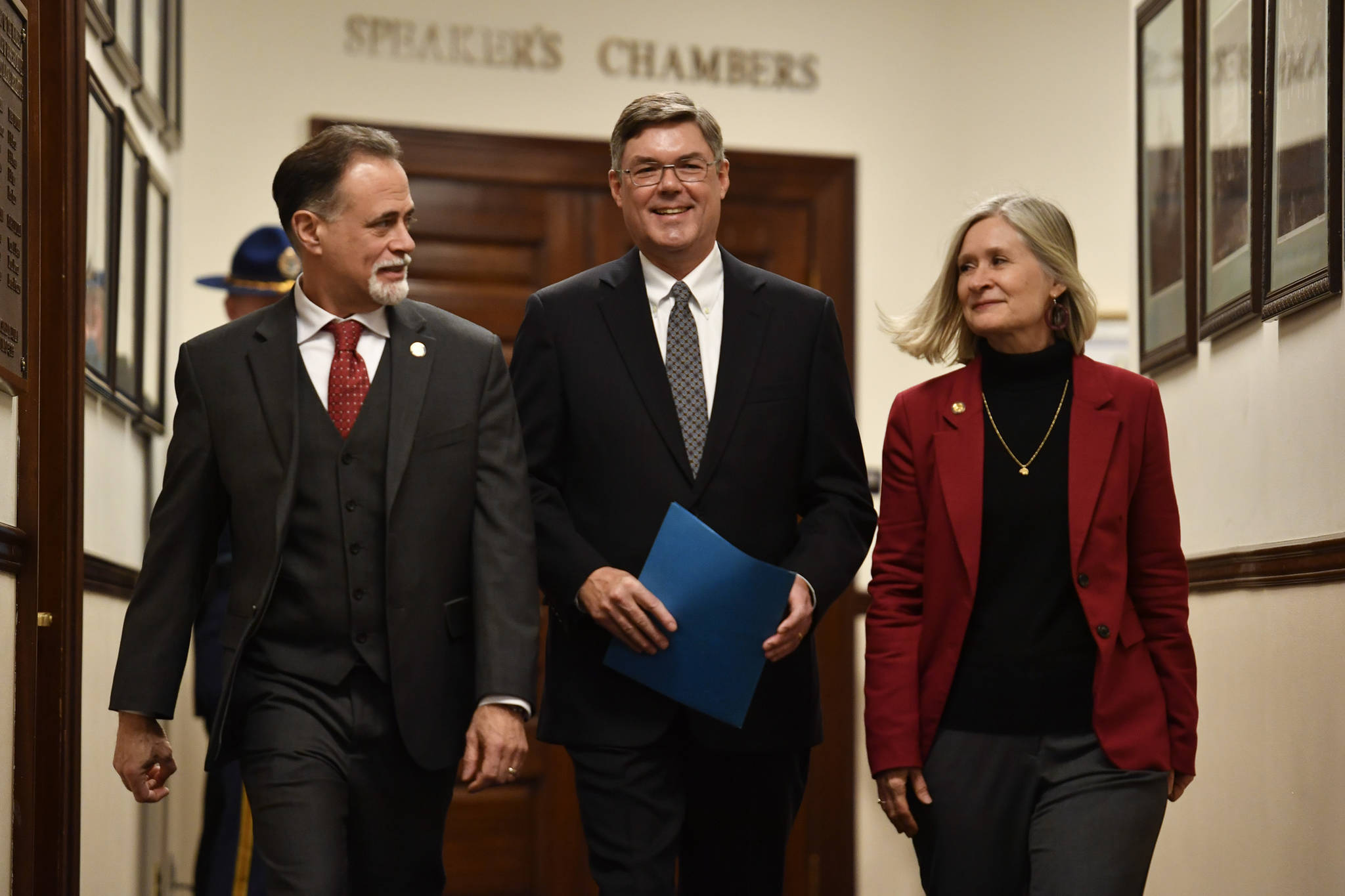Alaska Supreme Court Chief Justice Joel Bolger announced Monday his plan to retire when his current term ends on June 30, 2021.
Bolger is giving early notice of his retirement because the process for filing a judicial vacancy can take several months, and he wishes to ensure a smooth transition, according to an Alaska Court System news release.
The Alaska Constitution prescribes a system for selecting judges based on merit, which requires a comprehensive evaluation of judicial candidates by the Alaska Judicial Council. The evaluation includes detailed applications with references and writing samples, in-depth investigation of applicants, polling of all lawyers and judges in the state, public hearings, interviews, nominations to the governor and appointment by the governor, the release said.
The governor’s office could not immediately be reached for comment.
Bolger spent the majority of his professional career in rural Alaska, the release said, serving as a VISTA volunteer attorney in Dillingham, as an assistant public defender in Utqiagvik and in private practice with the firm of Jamin Ebell Bolger & Gentry in Kodiak.
[Chief Justice says courts don’t have optional programs, calls for more funding]
He was appointed to the Valdez District Court by former Gov. Tony Knowles in 1997, to the Kodiak Superior Court by former Gov. Frank Murkowski in 2003, to the Court of Appeals by former Gov. Sarah Palin in 2008 and to the Alaska Supreme Court by former Gov. Sean Parnell in 2013. His three-year term as chief justice began in July 2018. Bolger is the first person to be appointed to all four levels of the Alaska judiciary, according to the state court system
Bolger chairs the Family Justice Initiative at the National Center for State Courts; promoting family court reform; including judicial training; aggressive case triage; court process simplification; self-help resources; alternative dispute resolution and trauma responsive practices, the release said.
He also serves as a commissioner on the Alaska Criminal Justice Commission and previously served as Second Vice President of the Conference of Chief Justices; as Chair of the Fairness Diversity & Equality Committee and the Judicial Conference Planning Committee and as a member of the Criminal Pattern Jury Instructions Committee; the Appellate Rules Committee; the Child Support Review Committee; and the Family Law Rules Committee.
Bolger extends his gratitude to all of the judges and court staff who have worked so hard to continue to provide fair and impartial access to justice during the trying circumstances of the current global pandemic.
• Contact reporter Peter Segall at psegall@juneauempire.com. Follow him on Twitter at @SegallJnuEmpire.

